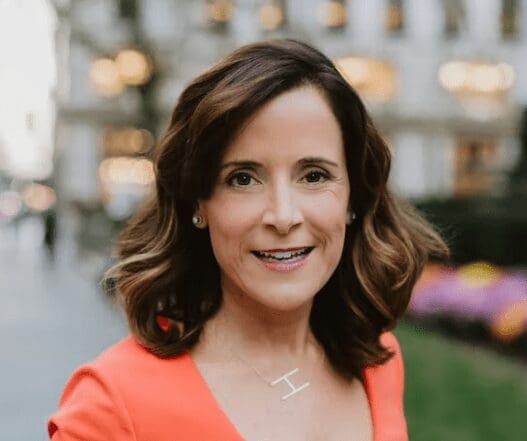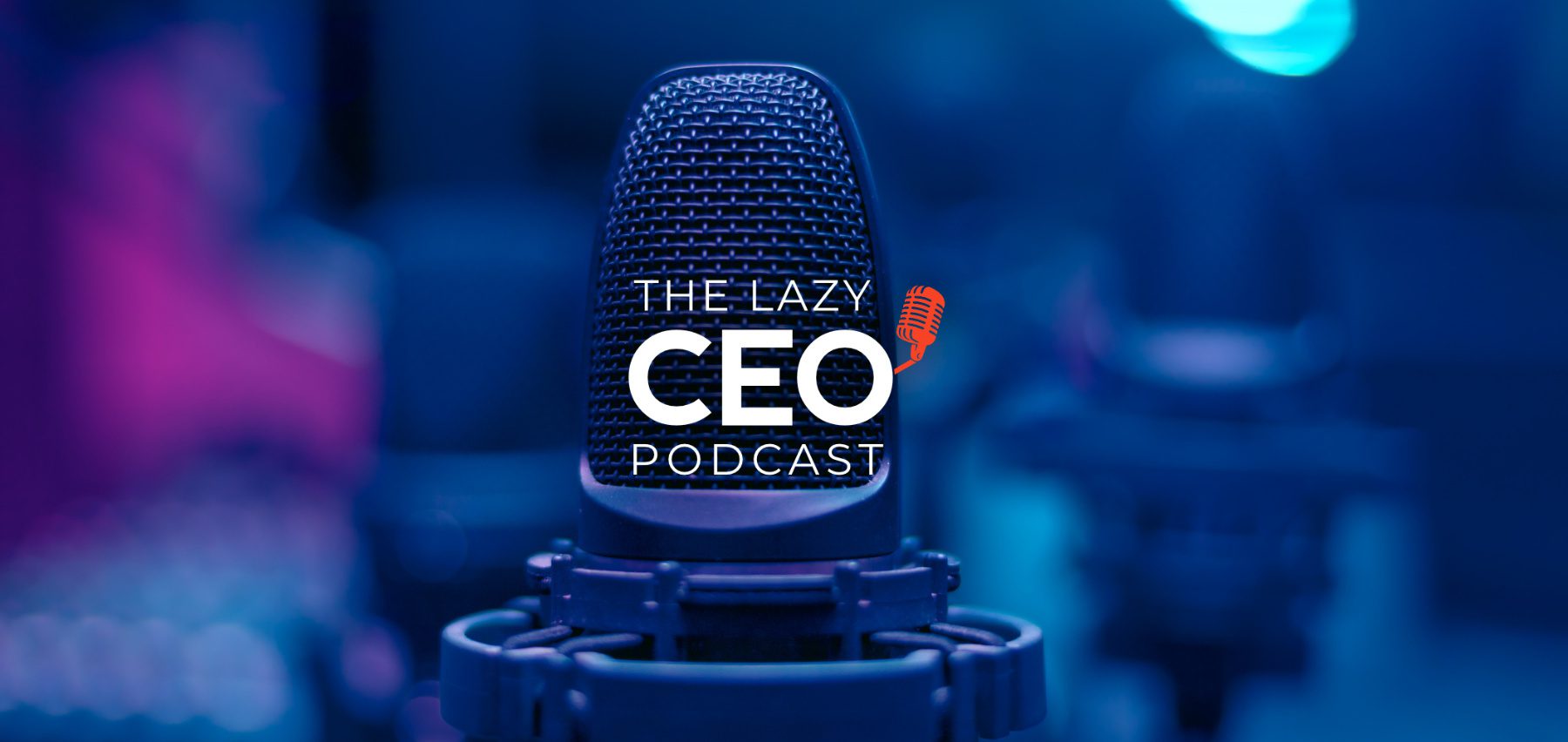Here is a glimpse of Creating Advocacy:
- Heather Hansen, CEO of Advocate to Win, shares her background as a lawyer and how that led to her expertise in advocating and persuading.
- What is Advocacy?
- The power of questions, including 3 powerful questions you must start to use.
In this episode:
This episode of The Lazy CEO Podcast is about creating advocacy. We have Heather Hansen, who is the CEO of Advocate to Win, and she is going to talk to us about advocating our positions and persuading people. Heather shares her background as a lawyer and how that has led to her expertise in persuasion and expertise. Heather defended doctors in medical malpractice cases. One of the things that made that job the hardest is that every single person in that courtroom was a patient.
Everyone saw the case through a patient’s eyes, and her job was to change their perspective and help them succeed in the case through the doctor’s eyes. And that is the main job of an advocate. This led Heather to this practice of advocacy and teaching advocacy.
What is Advocacy?
Advocating is influencing, it’s persuading, it’s convincing, it’s changing minds, it’s changing hearts. It’s helping people believe what you want them to believe, and it’s turning other people into your advocates. The first question to ask is who is your jury? And CEOs have many juries. Their board is a jury at a particular time. They’re stakeholders, their clients, their customers, and their team. But we have to know who the jury is so we know how to speak to them.
Compassion, Curiosity, and Credibility
Credibility is where we focus – the belief triangle. You want your jury to believe you. When you make a promise, you keep it. When you set expectations, you meet them, you want them to believe in you, and that you have the experience, the talent, and the capacity to do the thing you promise to do. And the part that most people forget is to believe that you can help them, that you understand their problem, their perspective, their point of view, and that you can help it. There are times, especially for CEOs, when you must knock down someone else’s credibility or question someone else’s credibility. How do you do that effectively, how do you use due diligence and look for inconsistencies to make decisions that are going to serve the people that you want to serve?
TIP: Questions are magic.
A great question can mean the difference between winning and losing a case.
- You can’t prove it until you believe it. You have to have that energy of belief. It’s one of the parts of credibility. It’s energy and evidence. You have to have that energy of belief and then the evidence as well, in order to help your jury of clients, customers, stakeholders, and board members believe as well.
Empathy vs Perspective
Empathy is feeling what others feel and perspective is seeing what they see. And you must not necessarily feel what they feel. For example, in the courtroom, defendants are frustrated, angry, scared, and confused. If their lawyer feels those feelings, they are not of service to them. So the empathy piece isn’t always imperative depending on the situation, the perspective piece, which is what you’re really talking about, is the cognitive part. Seeing what they see is imperative. Seeing it from their perspective and owning it is a credibility multiplier. Use your perspective to own where there are problems and boost your credibility.
Advocating for Yourself
Here is an example – a woman came to the CEO to advocate for a change in their policy with respect to working at home and taking care of children. She was a very strong advocate. She had stories, she had evidence, she had the energy of belief and he listened to her and he decided that she was right. And this is even though she was advocating. Then once he made the change to the policy because she had advocated so well, she became his strongest advocate. She told everybody in the business, she told everybody outside of the business, you need to come work for this company. There is no one who can advocate for you and your ideas and your potential better than you can because you have your stories and your evidence and your passion and your heart, and you know what your negotiables and your non-negotiables are. These tools will help you with your outer jury that we’ve talked about, but also with your inner jury, the part of you that decides what to believe and how to go out and then share that belief with others.
How do you overcome the mental baggage around self advocation? I’m not supposed to brag. I’m supposed to be humble. You’re not framing your stuff as, I’m awesome, I’m the best. Look at me, I deserve it. It’s, you need me to do this. And this is why, if I had the cure for cancer, I wouldn’t be bragging if I told people I had the cure for cancer, I would be serving them by making it available to them. Stop thinking about yourself and they start thinking about how your experience, training, talents, and passion can serve their jury, then you will stop feeling like they’re bragging and will be able to step into that energy of passion and excitement that actually is extremely persuasive.
Building Referrals into Our Business
We all want more referrals for our business. We don’t just want a Net Promoter Score, we want them to be advocates. What’s the difference? The difference is it’s not just saying this is a great company, it’s saying this is a great company and this is why. And so you turn people around you, into your advocates by advocating for them. So seeing things through their perspective builds credibility, which ultimately builds trust, compassion, and curiosity about their needs. You leave the people around you with stories, evidence, and energy to go out and advocate for you.
Three Powerful Questions
- Tell me what you want me to know.
- Where are they right?
- What am I missing?
For details about these three powerful questions as well as more examples and stories about advocacy, listen to the full podcast.
Resources mentioned in this episode:
- Heather Hansen on LinkedIn
- Advocate to Win on LinkedIn
- Jim Schleckser on LinkedIn
- The CEO Project
- Great Ceos Are Lazy: How Exceptional Ceos Do More in Less Time by Jim Schleckser
Thank you to our Guest

Heather Hansen
For over twenty years Heather was a trial attorney. Her job was to help diverse groups of people believe in her case so that her client could win. She honed the tools for her clients to build credibility quickly so they could persuade diverse juries to see things from their perspective. Now she is sharing the tools with you.
Heather has worked with organizations like Berkshire Hathaway Home Services, Google, Sav A Tree, the American Medical Association, Call Miner, and LVMH to help them make the case for their services, products, ideas, and their teams. She’s also shared these tools at Harvard Business School, Stanford Law School, and The University of Pennsylvania, and with audiences across the world.
Heather has combined her experience in the courtroom with her degree in psychology, her certification as a mediator, and her television work to develop her 5Cs of an Advocate.
With these tools, you can overcome objections, banish doubt, build credibility, and change people’s perspectives.
Sponsor for this episode…
This episode is brought to you by The CEO Project. The CEO Project is a business advisory group that brings high-caliber, accomplished CEOs together. Our team of skilled advisors is comprised of current and former CEOs who have run both public and private sector companies across multiple industries. With our experience and expertise, we guide hundreds of high-performing CEOs through a disciplined approach that resolves constraints and improves critical decisions. The CEO Project has helped high-performing, large enterprise CEOs with annual revenues ranging from $20M to over $2 billion to drive growth and achieve optimal outcomes. If you are an experienced CEO looking to grow your company, visit www.theCEOProject.com.









